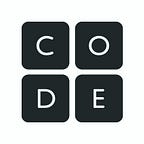Do you know the next great CS teacher? Ask them to apply for our Professional Learning program!
Starting today, applications are open to middle and high school teachers from all backgrounds and subjects to apply to our Professional Learning Program. Best of all, no previous computer science experience is necessary and many workshops are being held virtually!
Please note: These workshops are only available for U.S.-based teachers. For all other teachers, we recommend reviewing this article, which outlines the supports available to you.
The program for middle and high school teachers is hosted by our Regional Partners across the country, and is designed to prepare teachers before and during their first year teaching CS Discoveries or CS Principles. These workshops require an application and acceptance into the program, and in many cases full or partial scholarships are available.
Elementary school teachers interested in teaching our CS Fundamentals course can find a workshop in their area and register here (no application necessary).
Over a third of schools in the U.S. use Code.org’s curriculum, including the largest school districts in the country, such as Los Angeles, Dallas, and Broward County, FL.. And, over a quarter of our teachers come from rural schools. What’s more, a school’s participation in the Code.org program causes an estimated five-fold increase in the number of students that take, and earn qualifying scores on the AP Computer Science Principles exam. Schools owe it to their students to offer this critical subject!
CS sets students up for lifelong success
Now more than ever, teaching computer science is critical for K-12 students. The subject easily lends itself to remote learning or hybrid models, especially for teachers who rely on Code.org’s full catalog of courses and activities.
Teaching computer science also sets students up for success for the rest of their lives: Six different studies show that students who study computer science perform better in other subjects, excel at problem-solving, and are more likely to attend college.
Students who take AP Computer Science Principles, in particular, are 12% more likely to enroll in college compared to similarly-situated peers, and students who take AP exams are more likely to graduate from a 4-year college, regardless of their score on the exam.
Here’s what teachers have to say
To date, more than 100,000 teachers across the country have completed one of our workshops to begin teaching computer science in their classrooms. We consistently hear directly from teachers that our Professional Learning programs are some of the most valuable professional development they’ve ever had across any subject. Here are just a few things some teachers have to say:
You can help others join this movement
If you’re already teaching computer science in your classroom — or if you’re a Code.org alum yourself — please help us spread the word about this opportunity!
Our community of incredible educators is always growing, and we need your help to find the next great computer science teacher. We ask that teachers who are interested in our programs commit to participating in the full professional learning program (which includes a week-long workshop in the summer and periodic sessions for ‘just-in-time’ PD during the school year), plan to teach the course in the 2021–22 school year, and support the recruitment and enrollment of a diverse group of students in the course, representative of the school’s student population.
If you have friends or colleagues who you think would be great candidates, we have a number of resources tailored toward administrators or your fellow teachers.
Bringing computer science to every student, in every school, is truly a community effort. Whether you’re applying yourself or sending the application to a colleague, we can’t wait to meet a brand new cohort of teachers who will bring CS into their classrooms. Please join us!
-The Code.org Team
